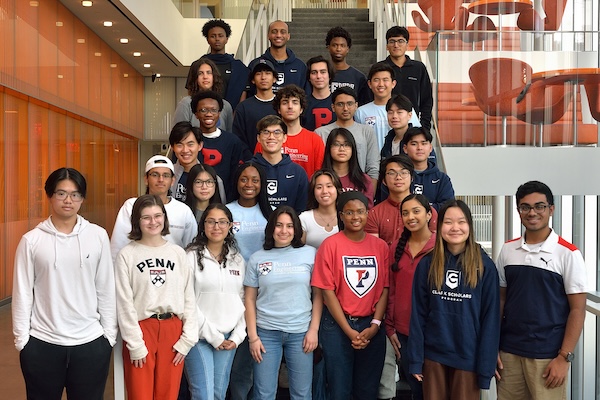
As most students finish packing their bags for a return to campus and the start of the fall semester, one small group will already be settling in.
No, they didn’t get their dates mixed up — these 10 engineering students are Clark Scholars, part of a prestigious program and one of several student groups who are getting a jump start on their first semester at Penn.
The Clark Scholars Program is named for A. James (Jim) Clark, a first-generation college student, civil engineer, and successful businessman who understood firsthand the transformative power of an undergraduate engineering degree. Established at Penn in 2017 with a $17.5 million investment by the A. James & Alice B. Clark Foundation, the program features robust engineering, lab and business coursework as well as forward-looking mentorship opportunities.
This past spring, the Clark Foundation invested an additional $2.5 million in the program, continuing to reduce financial challenges, removing work study requirements, and providing stipends for valuable summer engineering internships or research projects. The investment also covers tuition for summer courses not included in regular financial aid packages, helping to ease the academic load for scholars while empowering them to focus more fully on their academic pursuits.
Those academic pursuits are poised to begin: the Clark Scholars Program welcomes 10 new students annually with pre-orientation programming, led this year in part by Faculty Director Paulo Arratia, Eduardo D. Glandt Scholar in Mechanical Engineering and Applied Mechanics (MEAM) and in Chemical and Biomolecular Engineering (CBE).
“Part of the essence of the Clark Scholars Program is to provide resources, opportunities, and mentorship to promising students with financial need who would not have them otherwise,” notes Arratia. Recently appointed as the program’s director, he’s just as enthusiastic as he hopes incoming students are. “Part of my job is to make sure their excitement continues,” he shares. “I want to see them, four years from now, just as excited as they are today about their experience at Penn, their classes, their research, and beyond.”
